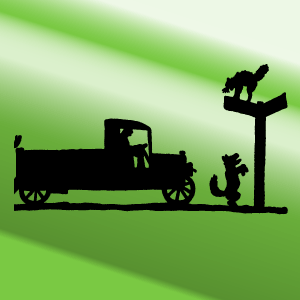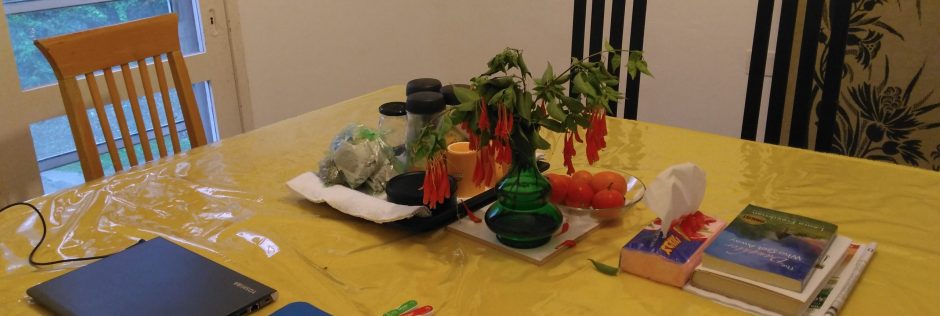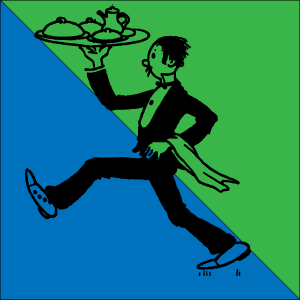 Evan and Joannie believed in voluntary poverty, so they welcomed the challenge of making do with little money. Besides, Evan didn’t want to do the things that would have led to economic security, like joining his father’s dental practice on West 23rd Street. Even after Evan realized that their plans for a utopian community on the Prophet River in northern British Columbia required about $600 per year, he didn’t ask his father, Morris, for anything. Morris was sad and perplexed that Evan had taken up with a non-Jewish girl who wore men’s trousers and wanted to be even poorer than Morris had been as an immigrant boy.
Evan and Joannie believed in voluntary poverty, so they welcomed the challenge of making do with little money. Besides, Evan didn’t want to do the things that would have led to economic security, like joining his father’s dental practice on West 23rd Street. Even after Evan realized that their plans for a utopian community on the Prophet River in northern British Columbia required about $600 per year, he didn’t ask his father, Morris, for anything. Morris was sad and perplexed that Evan had taken up with a non-Jewish girl who wore men’s trousers and wanted to be even poorer than Morris had been as an immigrant boy.
Though they were pacifists, Evan and Joannie headed for utopia in a refurbished US Army jeep, towing a heavy homemade trailer which caused repeated breakdowns. That summer, they raised a log cabin with some visiting friends from college. But autumn found them alone in the bush with a need for something more than “sweat equity.” So they packed out their possessions little by little, over ten miles of muskeg to the Alaska Highway, where they stored their things in a portable “skid shack” and went to look for work.
Winter found them living in the skid shack in Fort Nelson, sleeping on top of their cartons of books, tools, and clothing. The hotel where they found jobs served mining company people and others with business in the far north. It was hard work cooking for so many people, peeling hundreds of potatoes and cutting away the mushy sections that had frozen.
But they were happy at that time. The skid shack had an airtight heater vented through a pipe in the roof, and Joannie cooked by taking the lid off the heater and lowering a pot into the fire. It was only later in the utopian project that Evan learned what wintering in close quarters could do to people, just as he learned the horrors of getting a piece of flesh stuck to freezing metal.
One day, the hotel manager told Evan to bring in the sheets, which were put outside to dry in minus 40 degree weather. Evan didn’t realize that if you try to fold a frozen sheet it will break. Like his immigrant father, he was stubborn and determined to get the job done. For a while he broke sheet after sheet. Finally, he realized what was going wrong.
Copyright © Leora Freedman 2017
***If you have something to say, or a story to share, our comments page is the place to leave it!
 Copyright secured by Digiprove © 2017 Leora Freedman
Copyright secured by Digiprove © 2017 Leora Freedman 
 Some parents can’t make up stories for their children no matter how hard they try, while others realize that the story doesn’t have to be good—it only needs to keep going. Morris used to tell his three boys long stories about animals. There were dialogues between horses and cats, dogs and rabbits, and monkeys and birds. The animals spent a lot of time visiting each other. Sometimes they met new animals, and they might go to the playground or build a snow animal together. Each story was different but all of them ended with Morris asking: “And what do you think the little bird said? ‘Good morning merry sunshine!’”
Some parents can’t make up stories for their children no matter how hard they try, while others realize that the story doesn’t have to be good—it only needs to keep going. Morris used to tell his three boys long stories about animals. There were dialogues between horses and cats, dogs and rabbits, and monkeys and birds. The animals spent a lot of time visiting each other. Sometimes they met new animals, and they might go to the playground or build a snow animal together. Each story was different but all of them ended with Morris asking: “And what do you think the little bird said? ‘Good morning merry sunshine!’” The grocer’s shop on West 34th Street had a sign in the window: “Send a Salami to Your Boy in the Army.” It rhymed if you spoke like a New Yorker. In that shop, back in the 1960’s, Flora Feuerstein was known as “Mrs. Canada.” Her son Evan wasn’t in the army—he was starting a utopian community in Canada. No one in the shop ever asked any questions when she sent packages of kosher salami to Evan and Joannie, who were building a cabin in northern British Columbia. Flora was worried that they might not have enough to eat, and also that they might be eaten by wild animals.
The grocer’s shop on West 34th Street had a sign in the window: “Send a Salami to Your Boy in the Army.” It rhymed if you spoke like a New Yorker. In that shop, back in the 1960’s, Flora Feuerstein was known as “Mrs. Canada.” Her son Evan wasn’t in the army—he was starting a utopian community in Canada. No one in the shop ever asked any questions when she sent packages of kosher salami to Evan and Joannie, who were building a cabin in northern British Columbia. Flora was worried that they might not have enough to eat, and also that they might be eaten by wild animals.
 In 1959, when Evan and Joannie went up to homestead in the Prophet River country—more than one thousand miles north of the US-Canadian border—they almost immediately met an outgoing member of the Dane-zaa tribe named Jerry. That day, Evan and Joannie were busy backpacking their supplies from their cache at Mile 210 on the Alaska Highway. They carried their packs down over seven miles of muskeg to the spot on the Prophet River where they’d already built a lean-to. Their plans were to build a cabin and, eventually, a utopian community.
In 1959, when Evan and Joannie went up to homestead in the Prophet River country—more than one thousand miles north of the US-Canadian border—they almost immediately met an outgoing member of the Dane-zaa tribe named Jerry. That day, Evan and Joannie were busy backpacking their supplies from their cache at Mile 210 on the Alaska Highway. They carried their packs down over seven miles of muskeg to the spot on the Prophet River where they’d already built a lean-to. Their plans were to build a cabin and, eventually, a utopian community.
 When Evan was a little boy, his parents sent him to Quaker school because he was small for his age and the public school was rough. During rest period in the Quaker school, the children lay on the padded benches in the Meeting room. Evan looked up at the ornamented vent in the center of the domed ceiling and felt that the Holy One of Abraham, Isaac, and Jacob rested there, looking down on him and his classmates.
When Evan was a little boy, his parents sent him to Quaker school because he was small for his age and the public school was rough. During rest period in the Quaker school, the children lay on the padded benches in the Meeting room. Evan looked up at the ornamented vent in the center of the domed ceiling and felt that the Holy One of Abraham, Isaac, and Jacob rested there, looking down on him and his classmates. The ebook for The Daughter Who Got Away is up and live! It’s available for Kindle, Kobo, iBooks, and other e-readers. To buy the e-book, visit:
The ebook for The Daughter Who Got Away is up and live! It’s available for Kindle, Kobo, iBooks, and other e-readers. To buy the e-book, visit: Evan Feuerstein thought he was going to college to find out the meaning of life. His father Morris thought he was sending Evan to college so he’d become a dentist. Then he could join Morris in his West 23rd Street dental practice, which had just expanded to take up two apartments instead of only one.
Evan Feuerstein thought he was going to college to find out the meaning of life. His father Morris thought he was sending Evan to college so he’d become a dentist. Then he could join Morris in his West 23rd Street dental practice, which had just expanded to take up two apartments instead of only one. For our ancestors, learning to drive meant that they were American, not hungry, and they had places to travel to rather than places to escape. Joseph Baum imagined himself gliding on a country road in upstate New York, the wind teasing his wife Charlotte’s hair and his children, Flora and Edwin, in the back seat with a large picnic basket between them. Although there were no drivers’ licenses back then, Joseph took driving lessons from the man who sold him the second-hand Model T. He also bought a big book about engines and learned every detail about the combustion process.
For our ancestors, learning to drive meant that they were American, not hungry, and they had places to travel to rather than places to escape. Joseph Baum imagined himself gliding on a country road in upstate New York, the wind teasing his wife Charlotte’s hair and his children, Flora and Edwin, in the back seat with a large picnic basket between them. Although there were no drivers’ licenses back then, Joseph took driving lessons from the man who sold him the second-hand Model T. He also bought a big book about engines and learned every detail about the combustion process.